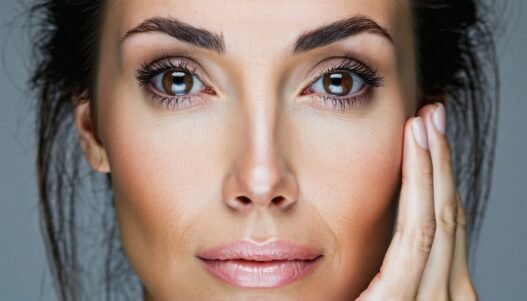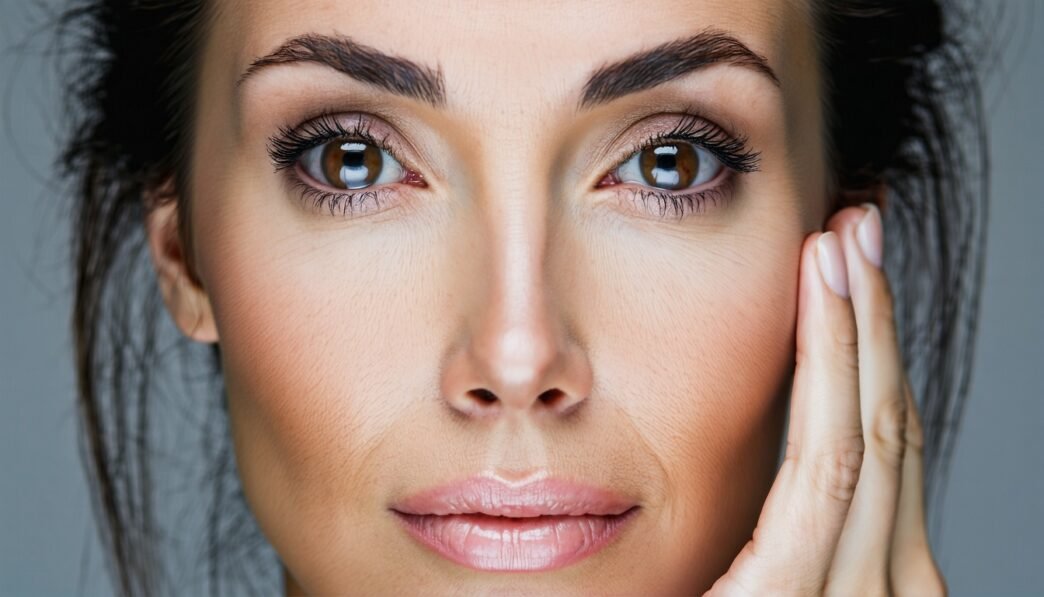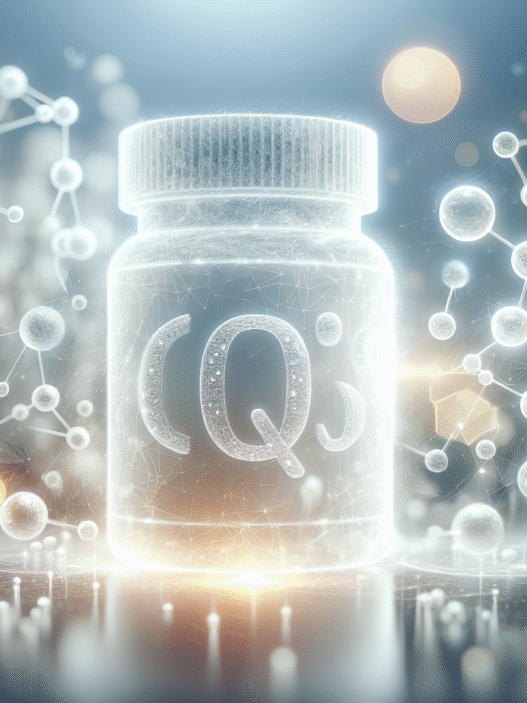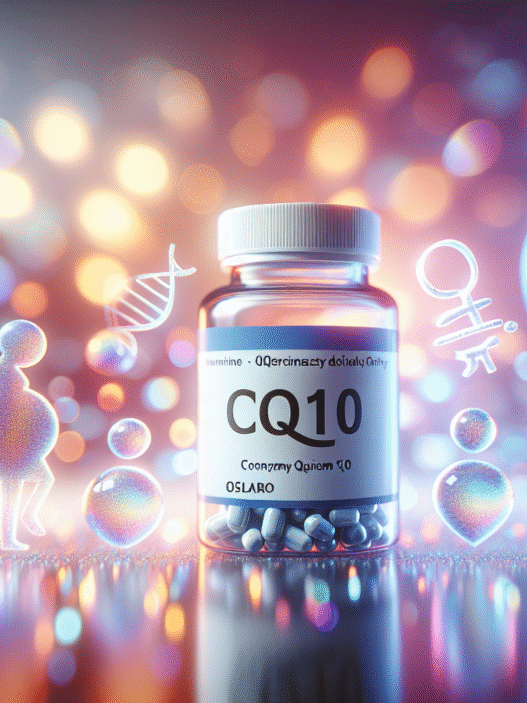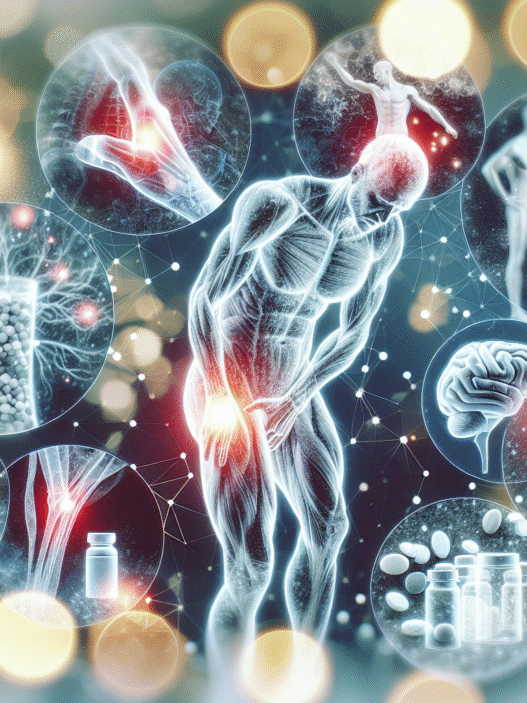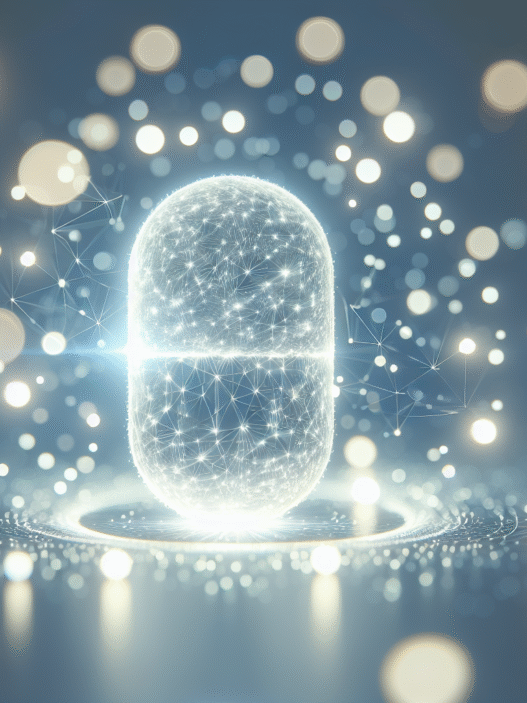Understanding CoQ10
Function and Distribution
Coenzyme Q10 (CoQ10) is a compound found throughout the body, with the highest concentrations located in the heart, liver, kidneys, and pancreas (Healthline). The primary function of CoQ10 is to help generate energy in cells. It is a crucial component of the electron transport chain (ETC), where it plays a vital role in the production of adenosine triphosphate (ATP).
CoQ10 functions by accepting electrons from various donors, including complex I, complex II, and enzymes involved in fatty acid oxidation. This electron transfer is essential for ATP production, which provides energy for cellular processes. CoQ10 is also a powerful antioxidant that helps protect cells from oxidative stress by stabilizing membranes and recycling other antioxidant molecules.
| Organ | CoQ10 Concentration |
|---|---|
| Heart | High |
| Liver | High |
| Kidneys | High |
| Pancreas | High |
Importance in Cell Health
The significance of CoQ10 in maintaining cell health cannot be overstated. It plays a central role in cellular energy metabolism and serves as a potent antioxidant. By neutralizing free radicals, CoQ10 helps mitigate oxidative damage to cells, which is a critical factor in the aging process.
CoQ10’s antioxidant properties are particularly beneficial for the skin, where it can reduce oxidative damage caused by UV rays, diminish wrinkles, and provide overall protection against environmental stressors. Furthermore, CoQ10 is essential for reproductive health, as it may improve sperm activity and concentration in males by enhancing antioxidant protection (Healthline).
For those interested in further enhancing their skin health, additional information can be found in the article on coq10 and skin health.
CoQ10’s widespread presence in cellular membranes and its contribution to ATP production underscore its importance in maintaining overall cellular health. The compound’s ability to stabilize cell membranes and protect against oxidative stress makes it a valuable ally in the fight against aging and its associated degenerative processes. For optimal results, considering CoQ10 supplements might be beneficial; more on this can be explored in coq10 supplementation.
Understanding CoQ10’s intricate role in cellular functions highlights its potential as a powerful anti-aging ally. With its impact on energy generation and antioxidant defense, CoQ10 stands out as a key player in promoting vitality and combating the effects of aging. For more insights on CoQ10’s anti-aging properties, read our section on coq10 anti-aging properties.
CoQ10 and Aging
Age-Related Decline
As individuals age, the levels of CoQ10 within the body naturally decrease. This decline is often more pronounced in individuals with certain health conditions, particularly heart disease, and those taking statins for cholesterol management (Mayo Clinic). The decrease in CoQ10 levels is a tissue-specific phenomenon; for example, muscle tissues tend to show lower levels of CoQ10 with aging. This reduction in CoQ10 can contribute to age-related decline in mitochondrial function, increased oxidative stress, and other aging characteristics.
| Age Group | Mean Plasma CoQ10 Levels (µg/mL) |
|---|---|
| Young Adults (20-39) | 0.70 |
| Middle-Aged Adults (40-59) | 0.63 |
| Older Adults (60-79) | 0.52 |
| Elderly Centenarians (80+) | 0.45 |
Source: PMC
Impact on Vitality
The decline in CoQ10 levels with age can significantly affect overall vitality. CoQ10 is vital for ATP production in the mitochondria, the energy powerhouses of the cell. Reduced CoQ10 impairs mitochondrial function, leading to decreased energy production and increased fatigue. Furthermore, decreased CoQ10 levels reduce the body’s ability to combat oxidative stress, contributing to cellular damage and inflammation.
Individuals with higher muscle strength and physical activity levels tend to have higher concentrations of CoQ10. Conversely, lower levels of CoQ10 correlate with increased lipid peroxidation and decreased physical endurance. Supplementing with CoQ10 has been shown to be beneficial for maintaining adequate levels in older adults, potentially improving energy levels and physical performance. For more information on how CoQ10 can support energy, refer to our article on CoQ10 supplements for energy.
An in vivo study on mice demonstrated that CoQ10 supplementation could improve collagen density in the skin, providing protection against UV rays and enhancing skin repair (Nature). This suggests that CoQ10 not only supports internal vitality but also improves skin health, offering a dual benefit for aging individuals. More details on CoQ10’s skincare benefits can be found in our article on CoQ10 skin care products.
For adults concerned with aging and maintaining vitality, understanding the role of CoQ10 and considering supplementation could be an essential strategy. Always consult with healthcare professionals before starting any new supplement regimen. For further insights on CoQ10 supplementation, visit our comprehensive guide on the best CoQ10 supplements.
Health Benefits of CoQ10
CoQ10, also known as Coenzyme Q10, is a powerful antioxidant that plays a vital role in energy production and cellular health. It can provide several health benefits, particularly for aging individuals. Here are three key areas where CoQ10 offers significant advantages: heart health, fertility support, and skin benefits.
Heart Health
CoQ10 is crucial for maintaining cardiovascular health. It is predominantly found in heart muscle cells, where it aids in energy production and acts as an antioxidant, protecting cells from oxidative stress. Research suggests that CoQ10 supplementation may improve treatment outcomes for people with heart failure. It can decrease the risk of mortality or hospitalization and improve left ventricular function. For more information, refer to our detailed guide on coq10 and heart health.
| Benefit | Impact |
|---|---|
| Mortality/ Hospitalization Risk | Decreased |
| Left Ventricular Function | Improved |
Fertility Support
CoQ10 also plays an essential role in reproductive health. In females, CoQ10 may help maintain and reverse age-related decline in egg quality and quantity, which is beneficial for female fertility. In males, CoQ10 has been shown to improve sperm activity and concentration by increasing antioxidant protection. Explore further benefits in our article on coq10 dosage for anti-aging.
| Gender | Benefit | Impact |
|---|---|---|
| Female | Egg Quality and Quantity | Maintained/Improved |
| Male | Sperm Activity and Concentration | Improved |
Skin Benefits
CoQ10 is renowned for its skin benefits, making it a valuable ingredient in anti-aging skincare products. It can reduce oxidative damage caused by UV rays, decrease wrinkles, and provide antioxidant protection when applied directly to the skin. To understand more, visit our articles on coq10 benefits for skin and coq10 and wrinkles.
| Skin Benefit | Impact |
|---|---|
| UV Damage | Reduced |
| Wrinkles | Decreased |
| Antioxidant Protection | Enhanced |
For those interested in CoQ10 for skin health: visit our resources on coq10 skin care products and coq10 for skin elasticity.
CoQ10’s health benefits extend far beyond these areas, including general cellular health and improved energy levels. Always consult a healthcare professional before starting any new supplement regimen, especially for high dosage CoQ10 intake.
CoQ10 Supplementation
Research Findings
CoQ10 supplementation has been extensively studied for its potential health benefits, especially in relation to the aging process. Research shows promising outcomes for individuals with various health conditions, particularly those related to heart health.
-
Heart Health: In patients with moderate-to-severe heart failure, CoQ10 supplementation is linked to symptom reduction, decreased major adverse cardiovascular events, improved functional capacity, and enhanced left ventricle contractility (NCBI Bookshelf). However, outcomes in patients with coronary artery disease are inconclusive.
-
Cardiovascular Mortality: When combined with selenium, CoQ10 supplementation in older patients and individuals with specific medical conditions may reduce the risk of cardiovascular death (NCBI Bookshelf).
-
Migraines: CoQ10 might also be beneficial for preventing migraines. This is particularly useful for those looking to explore natural preventative methods.
For an extensive overview of the benefits of CoQ10, consider reading about CoQ10’s antioxidant benefits and CoQ10 and heart health.
Dosage and Safety
Understanding the right dosage and safety measures for CoQ10 supplementation is crucial. CoQ10 is considered safe for most people when taken as directed, with few side effects. However, it is always advisable to consult with a healthcare professional before starting any new supplement regimen.
-
Dosage Recommendations: The recommended dosage of CoQ10 can vary based on the condition being treated. For general health and anti-aging purposes, doses typically range from 100 mg to 200 mg per day. For specific conditions like heart failure, higher doses may be recommended. Check out our guide on CoQ10 dosage for anti-aging.
-
Safety: CoQ10 appears to be safe when used appropriately. Mild side effects can include digestive problems, but these are generally rare (Mayo Clinic). Always monitor for any adverse reactions and consult your doctor if you experience any unusual symptoms.
-
Implementation: To incorporate CoQ10 into your regimen, it can be taken as a supplement or found in certain foods. For those interested in natural sources, read more about natural sources of CoQ10.
| Condition | Typical Dosage (mg/day) | Notes |
|---|---|---|
| General Health | 100 – 200 | Typically well-tolerated |
| Heart Failure | 200 – 400 | Consult a healthcare provider |
| Migraines | 100 | May take weeks for effect |
For additional insights into CoQ10, its benefits, and related products, explore articles on CoQ10 for youthful skin, CoQ10 and wrinkle reduction, and best CoQ10 supplements.
Understanding the research and guidelines for CoQ10 supplementation ensures that individuals can make informed decisions about its use. The right dosage and safety precautions can enhance the benefits and contribute to overall well-being, particularly in the context of the aging process.
CoQ10 and Disease Prevention
Coenzyme Q10 (CoQ10) is not only significant for cellular energy production but also plays a role in preventing various diseases. Particularly, its potential benefits are notable concerning heart conditions and neurodegenerative diseases.
Heart Conditions
CoQ10 supplementation has shown promise in managing and preventing certain heart conditions. According to the Mayo Clinic, CoQ10 might help in treating congestive heart failure and reducing the frequency of migraine headaches. The supplement is considered safe with few side effects, but it’s crucial to take it under medical supervision.
Studies indicate that CoQ10 can improve the health-related quality of life and reduce hospitalization rates in elderly individuals, especially when combined with selenium (PubMed Central). This points towards its potential as an anti-aging supplement, though more research is needed in older populations to confirm its effectiveness.
For those interested in exploring CoQ10 supplements, you can find more about the best CoQ10 supplements available.
| Heart Condition | Potential Benefit of CoQ10 | Source |
|---|---|---|
| Congestive Heart Failure | Improved management and symptom relief | Mayo Clinic |
| Elderly Health | Reduced hospitalization and improved quality of life when paired with selenium | PubMed Central |
For more details on how CoQ10 can impact heart health, visit our article on CoQ10 and Heart Health.
Neurodegenerative Diseases
CoQ10 also shows potential in preventing and treating neurodegenerative diseases. Research has highlighted an association between CoQ10 deficiency and diseases like Lewy body disease, amyotrophic lateral sclerosis (ALS), and Alzheimer’s disease (PubMed Central).
While animal model studies have demonstrated the positive effects of CoQ10 supplementation in aging-related diseases, the results in human trials have been mixed. Larger-scale trials, such as those involving Parkinson’s disease, have shown that CoQ10 supplementation is safe but haven’t conclusively demonstrated a clear benefit. This underscores the need for more carefully controlled studies to determine its efficacy in humans.
For more insights into CoQ10’s role in disease prevention and its therapeutic potential, read about CoQ10 and mitochondrial function.
| Neurodegenerative Disease | Potential Benefit of CoQ10 | Source |
|---|---|---|
| Alzheimer’s Disease | Association with reduced symptoms in deficiency cases | PubMed Central |
| Parkinson’s Disease | Safety confirmed but no clear benefit in large-scale trials | PubMed Central |
By understanding the potential health benefits and applications of CoQ10, individuals can make informed decisions about its use in their wellness and anti-aging strategies. To learn more about the benefits of CoQ10 for your skin, visit our articles on CoQ10 and skin health and CoQ10 benefits for skin.
Future of CoQ10
Research Insights
Coenzyme Q10 (CoQ10) has been a focal point of research due to its potential role in combating the aging process. Several studies have demonstrated that CoQ10 supplementation can improve mitochondrial function, reduce oxidative stress, and enhance overall cell health. For instance, animal studies have shown that CoQ10 supplementation can positively impact mitochondrial biogenesis and oxidative stress.
Aging is often associated with declining mitochondrial efficiency, reduced antioxidant activity, and increased oxidative stress marked by higher levels of reactive oxygen species (ROS). These factors contribute to various age-related diseases. Given that CoQ10 levels decline with age in humans, researchers are investigating whether CoQ10 supplementation can mitigate these detrimental effects.
Although current animal models suggest promising results, more controlled studies in human populations are needed to determine the precise effectiveness of CoQ10 as an anti-aging therapy. The relationship between CoQ10 levels and aging remains complex, and further research is essential to understand whether decreased CoQ10 levels are a cause or a consequence of the aging process.
Potential Anti-Aging Therapy
Continued research is exploring the potential of CoQ10 as a powerful anti-aging therapy. Notable advancements include the use of CoQ10 emulgels, which have demonstrated the ability to protect against the aging effects of UV radiation. These emulgels improve collagen density and increase fibroblast numbers, thereby enhancing skin elasticity and its anti-aging properties.
Given the promising research on CoQ10’s benefits for skin health, potential applications for CoQ10 in anti-aging therapies are expanding. These include its possible role in skin care products designed to boost skin elasticity and combat wrinkles. For individuals interested in enhancing their vitality and slowing signs of aging, incorporating CoQ10-rich products and supplements could be a viable option.
| Key Findings | Research Insights |
|---|---|
| Mitochondrial Function | Improved function and biogenesis in animal models (PubMed Central) |
| Oxidative Stress | Reduction in ROS levels and increased antioxidant activity (PubMed Central) |
| Skin Health | Enhanced collagen density and fibroblast production in CoQ10 emulgels (Nature) |
Ongoing studies continue to unlock CoQ10’s potential as an anti-aging agent. For more insights on how CoQ10 can benefit your health, our related articles on coq10 benefits for skin and coq10 supplements for energy provide detailed information.










